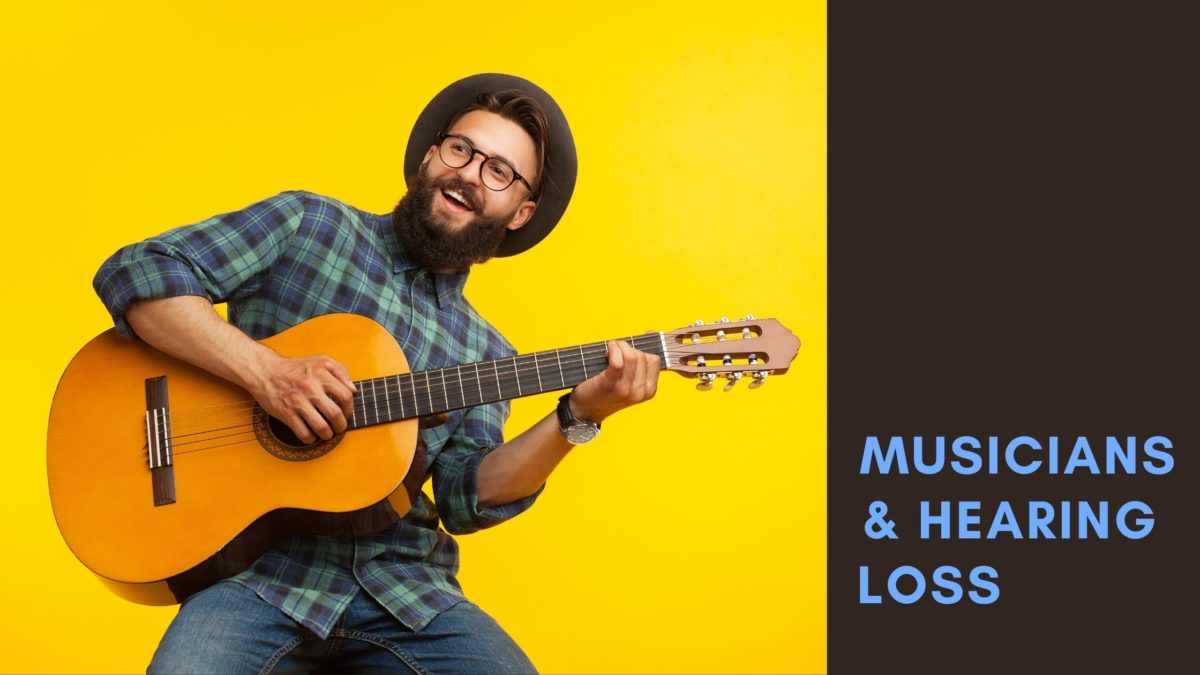When you think of people in noisy professions, you might immediately conjure images of workers in construction, factories or farming. It makes sense, folks who work daily with loud machinery are frequently exposed to too-loud levels of noise.
But it may surprise you to hear of another group of workers who often suffer from noise-induced hearing loss because of their profession: musicians. Of course, rock musicians are notoriously known to fly the banner of ‘the louder the better!’ However, classical musicians, who famously don’t amplify their sound through speakers also have a very high incidence of noise-induced hearing loss.
The unique plight of musicians
Studies show that professional musicians, both in rock music and the classical arena, are more likely to experience hearing loss as a result of noise exposure. Statistically, musicians are four times as likely to show signs of noise-induced hearing loss than people in other professions.
Additionally, tinnitus — the persistent ringing or buzzing noise heard though no external noise is present — appears significantly more often in rock musicians than non-musicians. Tinnitus can be a debilitating condition. Musicians like Chris Martin of Coldplay, Neil Young and Eric Clapton have openly discussed their own painful struggles with tinnitus.
Why musicians experience hearing loss
Noise-induced hearing loss occurs when too-loud noise damages the delicate inner ear cells. These cells are non-regenerative, which means that they don’t grow back or heal. Though we are born with around 3,500 inner hair cells and 12,000 outer hair cells, as damage and deterioration occurs, we begin to lose our abilities to hear the full range of sound frequencies.
Certainly, cells can be exposed to a sudden or violent extremely loud noise, like a crash or explosion, which immediately and irrevocably damages hearing. During those events, there is pain in the ear area and we instantly can feel damage being done.
But we can also accumulate large levels of ear cell damage slowly and over time. This type of harmful noise may feel innocuous at the time. There are no physical symptoms of hearing damage or pain associated with the noise. This type of incessant and long-term exposure to dangerous noise is the reason that many professional musicians emerge from decades of musical performance with permanent hearing loss.
How loud is too loud?
The Occupational Safety and Health Administration (OSHA) imposes standard regulations on workplace noise. Sound is measured in decibels and OSHA limits noise exposure to 90 decibels for workers in a standard eight hour shift. And yet, even that exceeds the recommended noise exposure widely accepted by hearing experts. While 90 decibels is an allowable standard, OSHA recommends that 85 decibels is a healthier noise level for workers and that sticking to the lower threshold better protects people from hearing loss. For context, conversation tends to hover around 60 decibels.
Rock concerts clock in at around 120 decibels. Consider that Eric Clapton has played more than 2,000 performances in a career spanning six decades. That is a tremendous amount of dangerous noise!
The subtle danger of classical music
Classical musicians, however, have a higher incidence of noise-induced hearing loss than rock musicians. An orchestra can frequently produce noise in excess of 90 decibels, sometimes reaching as high as 110 decibels. Additionally, classical musicians are more likely to practice more frequently and also teach music, heaping on many hours of dangerous exposure.
Ways to treat noise-induced hearing loss
While there is no magic pill or even advanced surgery to restore musicians to previous ranges of healthy hearing, there are ways to intervene. Hearing aids can help to both improve the hearing experience and to mitigate the painful reality of tinnitus, which often accompanies hearing loss. Roger Daltrey, lead singer of The Who, relies upon hearing aids to continue performing the group’s epic stage shows.
Prevention is the cure
Of course, wouldn’t it be wonderful to go back in time and prevent hearing loss? There’s no magic pill for that either, but you can always start by protecting the hearing you have right in this moment. Chris Martin of Coldplay has taken to wearing earplugs on stage to prevent further hearing damage.
Whether you are onstage or simply a spectator, protecting your hearing during music performances is a wise idea. If you’re ready to invest in your hearing future, our team of hearing health professionals can help you select the best hearing protection for your needs and lifestyle.

